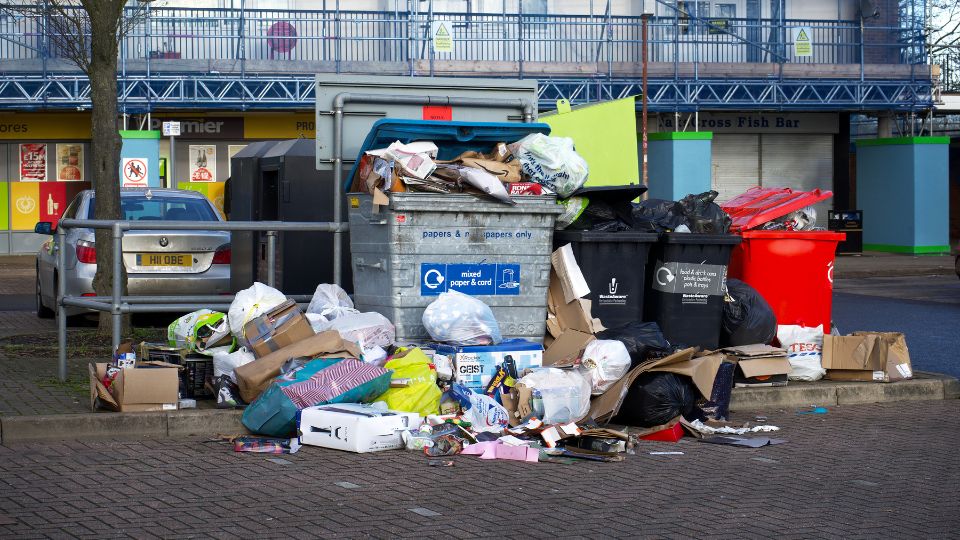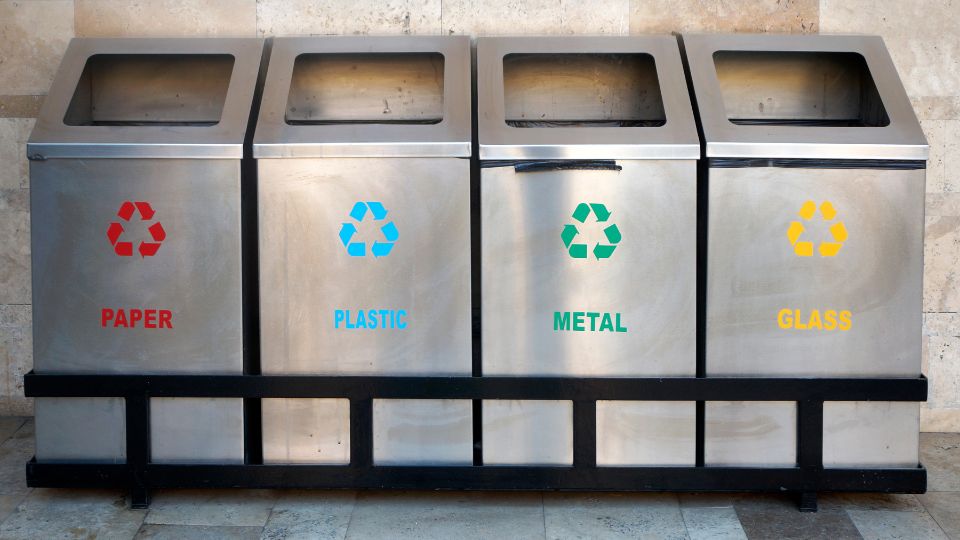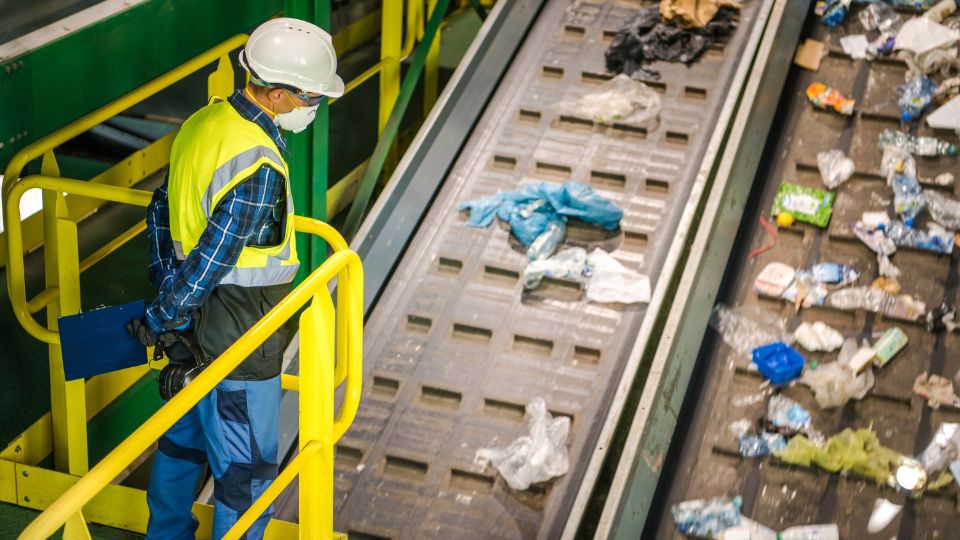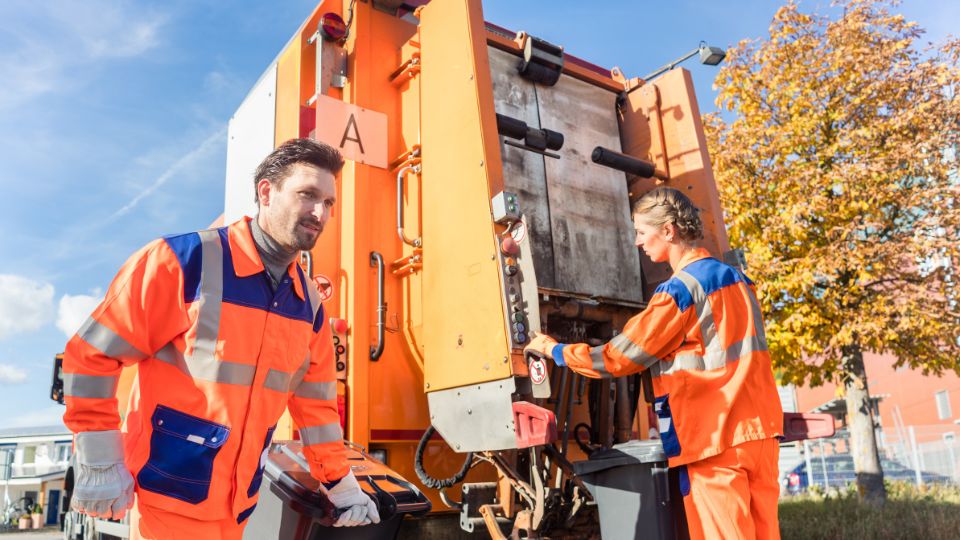
Quick Summary:
- Implement immediate solutions like using additional waste containers, and scheduling extra collections to manage overflowing bins effectively.
- Adopt long-term strategies such as conducting waste audits, increasing recycling efforts, and educating employees on proper waste disposal practices to prevent bin overflow and improve overall waste management.
Waste management is an essential service that impacts the quality of life in our communities. Data from BBC news indicates a significant rise in complaints related to waste collection across the UK, including issues with overflowing bins.
In 2018, an alarming 1.8 million complaints were reported by 336 authorities, highlighting serious issues in both non-recyclable and recyclable waste collection.
This rise in complaints underscores the need for immediate action to address the problems associated the frequent occurrence of overflowing bins.
Table of Contents:
- Understanding the Problem
- Immediate Solutions for Overflowing Bins
- Long-Term Strategies to Prevent Overflowing Bins
- Educate and Engage Employees
- Conclusion
Understanding the Problem
The rise in complaints about waste collection services, including issues with overflowing wheelie bins, highlights the importance of efficient waste management.
Whether it’s due to missed collections, increased waste generation, or insufficient bin capacity, overflowing bins can disrupt your business operations and harm your reputation.
Immediate Solutions for Overflowing Bins

1. Organise Waste
Additionally, ensure that waste is organised and placed correctly in the bins, with recyclables separated from general waste,
Organising bin stores can enhance the visual appeal of the area and enable your team to manage waste more efficiently.
It is important to note that waste in your bin should NOT be compressed. Compacting waste reduces the amount of oxygen available, which slows down the decomposition of organic materials. This can extend the time that waste remains in landfills.
By keeping waste uncompressed, you help ensure that it can be properly sorted, processed, and recycled, leading to more efficient and effective waste management.
2. Utilise Additional Waste Containers
If your wheelie bins are frequently overflowing, consider investing in additional waste containers.
Extra bins can help manage peak times when waste generation is higher, preventing overflow and keeping your premises tidy.
3. Schedule Extra Collections
Contact your waste collection service to arrange for extra collections, especially during busy periods.
Many waste management companies offer flexible collection schedules that can be tailored to your business needs.
Long-Term Strategies to Prevent Overflowing Bins

1. Conduct a Waste Audit
A waste audit can help you understand the types and volumes of waste your business generates.
This information is crucial for making informed decisions about your waste management practices and identifying areas where you can reduce waste.
2. Increase Recycling Efforts
Encouraging recycling within your business can significantly reduce the amount of general waste you produce.
Ensure that you have clearly marked recycling bins and educate your staff on what materials can be recycled. This not only helps in managing waste more effectively but also supports environmental sustainability.
3. Implement Waste Reduction Initiatives
Adopt practices that minimise waste generation. For instance:
- Use Reusable Products: Replace single-use items with reusable alternatives.
- Order in Bulk: Buying in bulk reduces packaging waste.
- Compost Organic Waste: If applicable, composting can reduce the volume of food waste in your bins.
Educate and Engage Employees

Your employees play a crucial role in waste management. Educate them on proper waste disposal practices and the importance of keeping the bins organised.
Regular training and clear communication can go a long way in preventing bin overflow.
Monitor and Review Your Waste Management Practices
Regularly review your waste management practices to identify any issues and areas for improvement. Monitoring the volume of waste and the effectiveness of your current waste disposal methods can help you make necessary adjustments and ensure your bins are not overflowing.
Conclusion
Effective waste management is essential for maintaining a clean and professional business environment. By implementing these strategies, you can prevent overflowing bins, improve your waste management practices, and contribute to a more sustainable future. Remember, a proactive approach to managing your waste not only keeps your premises tidy but also reflects positively on your business.
If you have any questions or need assistance with your waste management, don’t hesitate to contact your local waste collection service for support.








